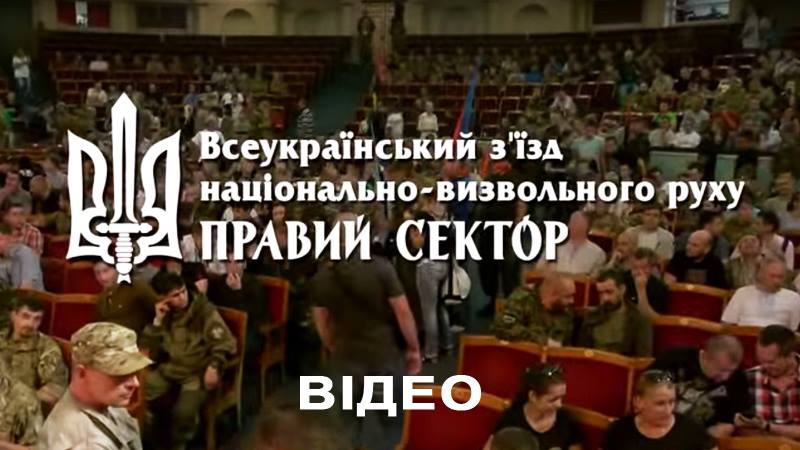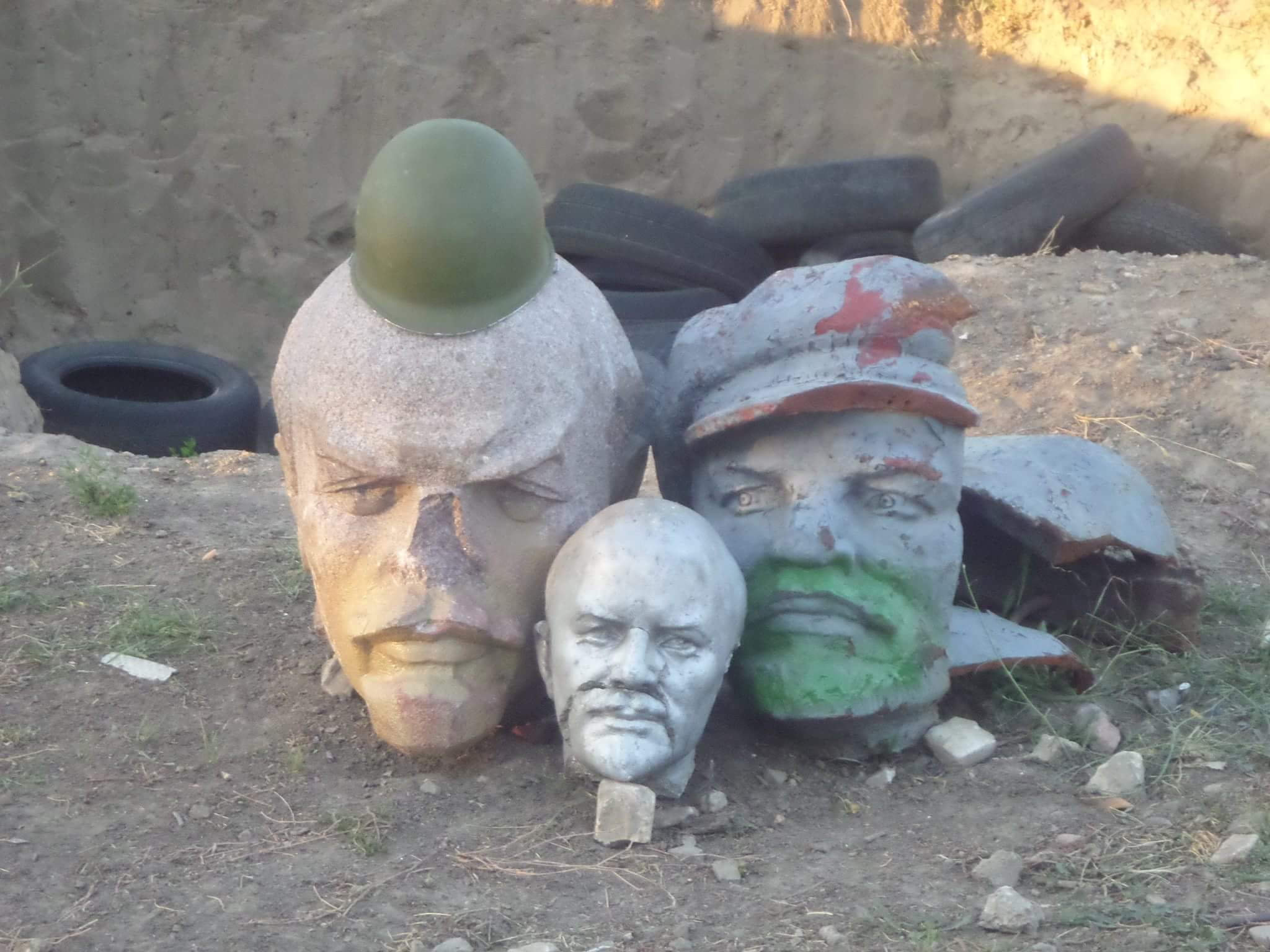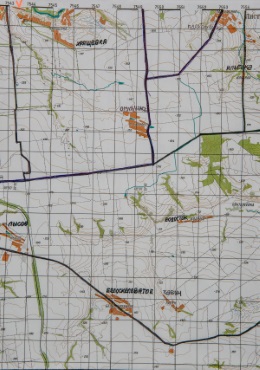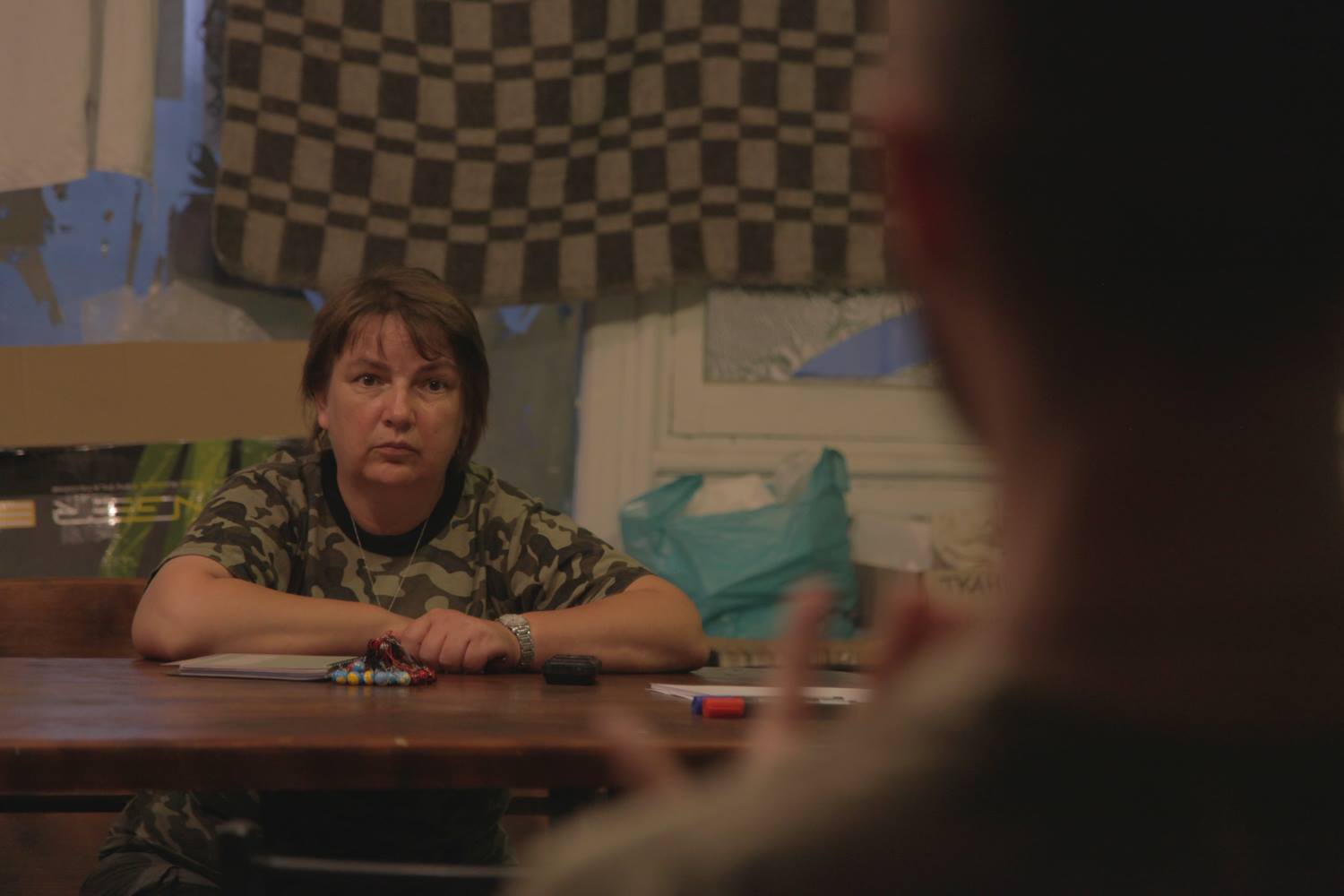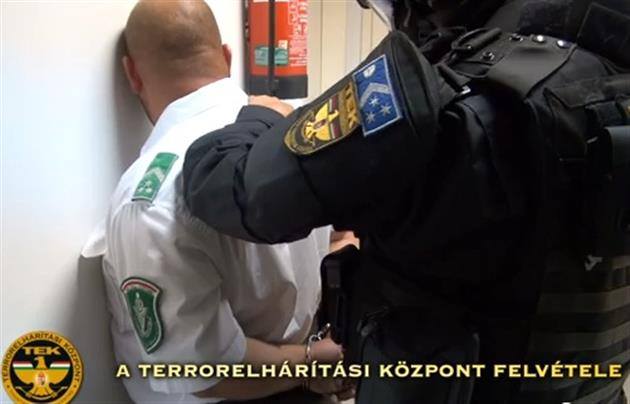“What is tactics?”. Instructor asks the question in a sharp and laconic military manner.
The room is silent. Then there comes a shy semi-question:
“Is this a science?”
“No! Tactics is not a science. This is pure art. The art to overtake the circumstances, plan the actions intelligently, in order to impose the enemy your own game rules”.
I quietly observe the reaction of pupils who wear camouflage and I feel like them. We understand that there is something we do not understand, but we still do not understand what is it that we do not understand. However, this ain’t a problem, since today this is only the first training on tactics. Our instructor is severe, he rapidly brings anybody to his level, asks a question in abrupt manner and patiently expects the answer, slightly bowing his head aside with a tuft of grey hair revealing a visible scar that left after the old injury.
He explains to the class full of silent “Right Sector” volunteers, what for one has to correctly estimate the intentions and possibilities, as for defence, as for planning of advance. What is the influence onto the plans of red forces (at planning, we, as many armies of the world, are “red”, and the enemy is “blue”) of the terrain, illumination, time and means available. How one can correctly estimate his own resources and learn about the resources of the enemy. The Instructor speaks something by himself, and forces us to speak on something, without hurrying to help:
“I need to see how do you think, in order to understand what and how should I train you”.
After theory introduction comes practice. And that is the most interesting.
“Let’s have some war practice. However, since you are the beginners, we will start from the ancient times. Between you and the sovereign from a neighbouring castle there is a dispute on the border. You say that it has to be closer to his fortress, and he says it should be closer to yours. There was a failure in a peaceful solution of the issue, and your neighbour asked you to fight, saying “I’m coming to you”.
There’s a little cheer behind me there, because among the fighters are many of those called “reconstructors”. Those are not only good in history, but also like to reconstruct the life, clashes and battles of the past in reality.
“A hookup”, the Instructor smiles ironically, “was agreed to be at 6 a.m. in the same border. You have the following data: your position and your rival’s position are around two heights. Weather is dry and hot, wind blows in south-east direction with strong blasts. You are on the south, and your rival is on the north. The forces are more-less equal”.
With fast movements the Instructor draws on the board a simplified map of the locality with the source data. So did my history teacher. He liked to draw the whole pictures of the former famous battles, he knew them perfectly and it seemed he always lived through them, involving the class with him.
“You have”, pronounces the Instructor, “a squadron of cavalry, a cohort of spearmen, fifty archers, one cohort of armored and one cohort of light infantry. Also there is information from intelligence that in your rival’s castle until morning was heard creaking of wagons, roaring of cattle, and music and female laughter was heard from windows. Your task is to estimate your advantages and disadvantages. We work in groups of three, but everybody provides an individual answer”.
There was a silent rumble in the room. Everybody discusses pluses and minuses of our situation in the announced clash. Consider the sunlight direction, where the wind will carry the arrows, what will be the coverage of dust raised by horses. We work.
Soon everybody passes a difficult exam, since the instructor requires straight answers and doesn’t like any blue-sky thinking.
Finally, we receive the dislocation of the rival’s forces. He does not have one troop on his position, therefore he prepares some surprise. And our home task is to process possible variants of the battle.
We are dismissed. I understand that tomorrow I will not be able to spend four hours onto the training, because I will not dare to transfer my own job to DUK-info personnel. However I’ve learned a lesson for myself: first of all, while planning a military operation, it is necessary to think of retreat. I’m deep in thoughts… Even at 4 a.m., having awaked before the sunrise.
And at eight o’clock while going to breakfast I notice a man on duty, who is my yesterday’s college of a group of three.
“Are you on duty?”
“I’ve asked it by myself. I need to perform the home task”. And he opens the notebook with the familiar notes.
I stay at his table, and we jointly process the schemes of battle, bravely drawing each other’s plan with the pencil.





